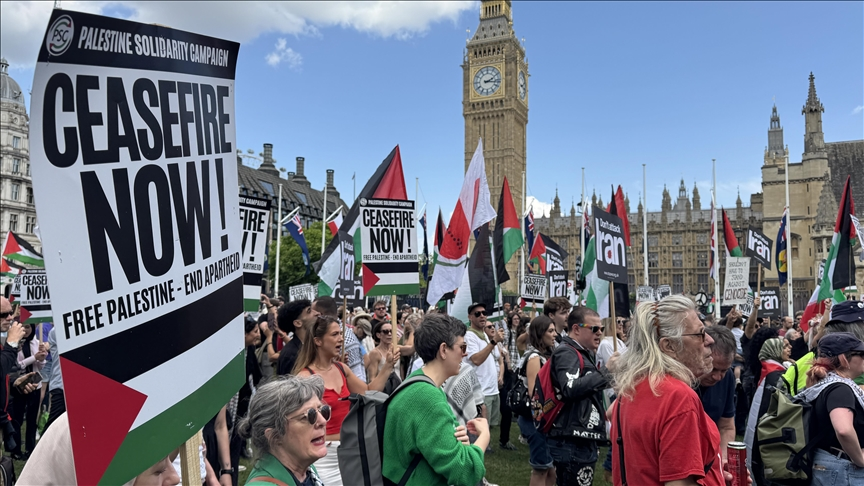The legal battle surrounding Mahmoud Khalil, a Palestinian man detained for years on immigration charges, has reached a significant turning point. A federal judge has ordered his release, marking a victory for his legal team and advocates who argued his prolonged detention was unjust. This decision, however, is far from the end of the story, raising complex questions about immigration law, due process, and the power of the judiciary to challenge executive authority.
The Case of Mahmoud Khalil: A Prolonged Legal Struggle
Mahmoud Khalil’s journey to the United States began years ago, seeking refuge and a better life. However, his path was fraught with legal obstacles. He was ultimately detained by immigration authorities, facing deportation proceedings that stretched on for an extended period. Throughout this ordeal, his supporters consistently maintained that his detention lacked sufficient legal justification and violated his fundamental rights. The core argument centered on the lack of credible evidence to support the government’s claim for deportation. His lawyers argued that his detention was arbitrary and excessive, exceeding the reasonable bounds of pre-deportation procedures.
Key Arguments Presented in Court
The legal arguments presented on behalf of Mr. Khalil focused on several key points:
- Lack of sufficient evidence for deportation: The defense argued that the government’s case for deportation lacked the necessary evidentiary support. They challenged the credibility of the information presented and highlighted inconsistencies in the government’s narrative.
- Violation of due process: The prolonged nature of Mr. Khalil’s detention, without a clear timeline for resolution, was presented as a violation of his right to due process under the law. The defense contended that the indefinite detention infringed upon his fundamental rights.
- Humanitarian concerns: The defense also presented humanitarian arguments, emphasizing the impact of prolonged detention on Mr. Khalil’s mental and physical well-being. They highlighted the lack of adequate medical care and the detrimental effects of prolonged isolation.
- Potential for abuse of power: A central argument focused on the potential for abuse of power within the immigration system. The defense suggested that Mr. Khalil’s case highlighted systemic issues that allowed for prolonged detention without sufficient legal justification.
The Judge’s Decision: A Landmark Ruling?
The federal judge’s decision to order Mr. Khalil’s release represents a significant challenge to the executive branch’s authority in immigration matters. It suggests a willingness by the judiciary to scrutinize the government’s actions and ensure adherence to legal processes. The ruling likely hinges on a finding that the government failed to meet the burden of proof necessary to justify prolonged pre-deportation detention. The specific legal reasoning underlying the judge’s order remains a point of interest and analysis for legal scholars and advocates.
Implications of the Ruling
This decision has far-reaching implications, potentially setting a precedent for future cases involving prolonged immigration detention. It could encourage more rigorous scrutiny of detention procedures and strengthen the rights of individuals facing deportation. However, the government may appeal the decision, potentially leading to further legal battles. The outcome of any appeal will significantly impact the legal landscape surrounding immigration detention.
The Ongoing Debate on Immigration Detention
The case of Mahmoud Khalil sheds light on the ongoing and often contentious debate surrounding immigration detention. Critics of the current system argue that it is frequently used excessively, leading to the prolonged incarceration of individuals without sufficient justification. They call for reforms that prioritize due process, transparency, and humane treatment of detainees.
Arguments For and Against Prolonged Detention
Proponents of stricter immigration enforcement often argue that prolonged detention is necessary to ensure public safety and prevent individuals from absconding before deportation proceedings are completed. They emphasize the importance of maintaining control over individuals who may pose a risk to the community. Conversely, opponents highlight the negative consequences of prolonged detention on individuals’ mental and physical health, emphasizing that it can inflict significant and lasting harm. They advocate for alternatives to detention, such as community-based supervision or electronic monitoring, where appropriate.
What Happens Next?
The release of Mahmoud Khalil marks a significant development, but the legal saga is likely far from over. The government may choose to appeal the judge’s order, potentially leading to a lengthy appeals process. Even if the appeal is unsuccessful, the challenges Mr. Khalil faces in seeking a long-term solution to his immigration status remain. The decision serves as a reminder of the complexities and uncertainties involved in navigating the US immigration system.
The Future of Immigration Law and Policy
Mr. Khalil’s case underscores the need for a thorough review of immigration law and policy in the United States. Reform efforts should address issues of due process, transparency, and the humane treatment of immigrants within the system. It’s crucial to strike a balance between ensuring public safety and protecting the rights of individuals facing deportation. The conversation needs to shift toward solutions that focus on fairness, efficiency, and respect for human dignity.
Conclusion: A Step Towards Justice?
The federal judge’s order to release Mahmoud Khalil represents a potentially significant step toward justice. It highlights the critical role of the judiciary in safeguarding individual rights and holding the government accountable. However, the ongoing legal battles and the broader systemic issues within the immigration system continue to warrant attention and necessitate ongoing advocacy for reform. The case serves as a stark reminder of the human cost of prolonged immigration detention and the need for a more just and compassionate approach to immigration policy.










